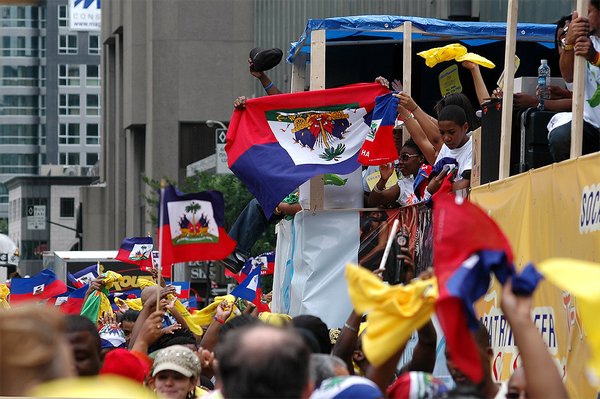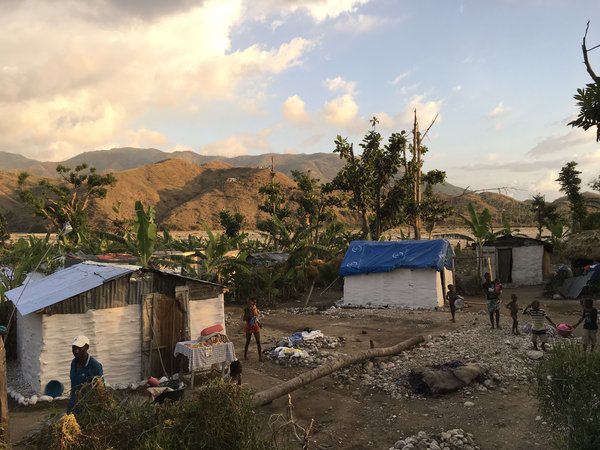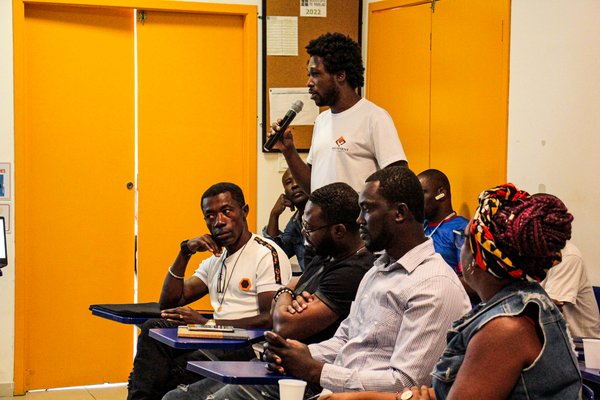
Art by Studio Gruff, Positive Negatives Org
"Unstoppable Beat" is an animation produced by PositiveNegatives in collaboration with MIDEQ research team in Haiti, INURED, and team in Brazil, IMJA, highlighting the impact of migration on migrants abroad and their families back home.
The Unstoppable Beat film is inspired by videos showcasing Haitian and Brazilian communities in Rio, celebrating their unity through song and dance. Drumming, a universal and ancient art form prevalent in both cultures and worldwide, carries historical ties to West Africa, stemming from the migrations of the past. Additionally, it has been a symbol of resilience for grassroots political movements. The script employs drumming as a metaphor for the indomitable Haitian spirit and the power of collective action, drawing parallels with the historical migrations and struggles of these communities. The animation is available in English, Haitian Creole, Portuguese and French.

Commenting on the animation, Dr Benjamin Worku-Dix, founding director of PositiveNegatives noted:
"This was a truly collaborative process with Positive Negatives requesting INURED's review of the script and visuals and using our feedback to ensure that the story reflected Haitian culture and the reality of many Haitians migrating to Brazil. This animation humanizes the migratory experience by illustrating that the decision to leave home is not taken lightly and requires a lot of sacrifices along the way. Migration is about hope for the future, but that journey is often filled with sacrifice and pain. Unstoppable Beat beautifully juxtaposes hope against a present filled with challenges and unknowns. It is that hope that sustains them when faced with immense adversity. That is what makes this a powerful animation."
Dr Toni Cela, Researcher in MIDEQ’s Haiti-Brazil corridor, noted:
"Once we established connections with Haitian collectives and organisations, we endeavoured to understand their perception of justice. Our goal was to determine the extent to which their concerns fell within the realm of formal resources, addressable through legal means, and how many were informal issues embedded in society, such as relationships and a sense of belonging. It became evident that family reunification stands out as one of the primary challenges facing the Haitian community currently. We organised an agenda encompassing these emerging issues, with the intention of bringing them to the forefront of British society's awareness, as they often remain largely invisible. Family reunification, in particular, serves as a representative issue that encapsulates numerous other related concerns, including issues of inclusion, belonging, hospitality, income, the absence of a direct flight from Haiti to the UK, and the difficulties associated with obtaining visas and renewing passports."



